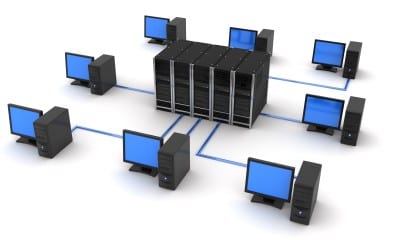Every company in the world keeps data of some sort, even the smallest mom-and-pop shops track orders, inventory and month-over-month growth. But how often is that data shared amongst other companies in an effort to reduce costs and expenses across an industry?
 That’s the unorthodox proposal set forth by Bill Buckholz, the chairman of Goodman Vending Services and a leading industry veteran. Speaking at a recent industry event, the former vending machine technician said he has spent a ton of time speaking with machine operators around the country about their service calls and realized that it would be extremely valuable to analyze those calls for a slew of data points, including service call frequency per machine, service time, service costs, technician training time, etc. Data from the analysis, he said, could then be built into a national database that be used by companies to establish service patters and point to techniques for reducing the massive expense of repairing equipment in the field.
That’s the unorthodox proposal set forth by Bill Buckholz, the chairman of Goodman Vending Services and a leading industry veteran. Speaking at a recent industry event, the former vending machine technician said he has spent a ton of time speaking with machine operators around the country about their service calls and realized that it would be extremely valuable to analyze those calls for a slew of data points, including service call frequency per machine, service time, service costs, technician training time, etc. Data from the analysis, he said, could then be built into a national database that be used by companies to establish service patters and point to techniques for reducing the massive expense of repairing equipment in the field.

Although service companies are in constant competition with one another and the concept of sharing data might seem absurd, Buckholz brings up an interesting point: by building bridges and breaking from the widely adopted business practice of “every man for himself,” sharing invaluable information throughout an industry can end up benefiting everyone.
Providing Invaluable Intelligence
Imagine you’re an operations manager at a small HVAC business in a small market. Your company is about to expand into a much larger market and, while you’re trying to prepare the best you can, you’re not entirely sure what to expect. Service calls will definitely increase, but by how much? Do customers in a larger city with larger, more complex (or older) buildings have more issues with their ventilation ducts? Will your technicians take longer to reach customers due to increased traffic? How will higher gas prices in a larger city affect your fleet overhead?
With a referable database on hand, full of data compiled over time by other HVAC companies within your new market, many of these questions could likely be answered, allowing better foresight and ultimately reducing operational and service costs. The savings could trickle down to customers as well – organizations could offer equipment at lower costs and more efficiently.
Buckholz’s concept of a national database for service industries is certainly one that can be hard to digest for businesses fighting against each other to stay afloat in a down economy and one that would likely be even harder to implement on a large scale. Nonetheless, his point is clear: data is key to enterprise sustainability and the more of it there is, the better.

Share this: